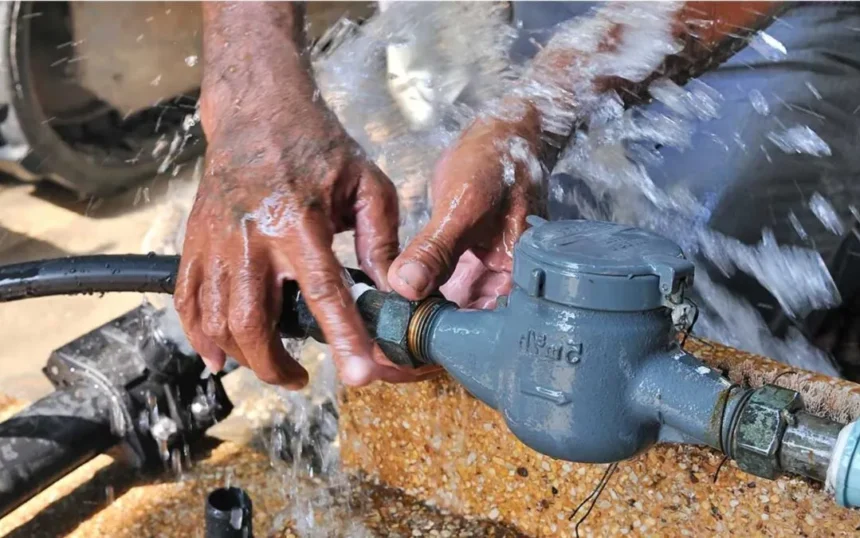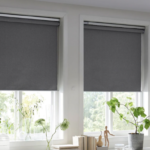Water is one of life’s most essential resources, yet it can also become a source of stress and damage when leaks occur. In households and commercial properties, water leaks can lead to significant structural damage, increased utility bills, and health hazards such as mold growth. This blog aims to provide an in-depth examination of water leak detection and repair, outlining methods, technologies, costs, and tips for homeowners. Whether you’re looking to prevent leaks or address existing issues, this guide is designed to be both informative and SEO-friendly.
Understanding Water Leaks
What is a Water Leak?
A water leak is an unintentional escape of water from pipes, fixtures, or appliances. Leaks can occur anywhere in a plumbing system, and they can be as small as a dripping faucet or as severe as a broken main line. Understanding the types of water leaks is crucial for effective detection and repair.
– Internal Leaks: These are leaks that occur within your home’s plumbing system, often hidden behind walls or beneath floors. Common sources include toilet tanks, sink faucets, or water heaters.
– External Leaks: These leaks occur outside of the house, often in water supply lines or irrigation systems. They can lead to potential erosion, flooding, and costly repairs.
Common Causes of Water Leaks
- Aging Infrastructure: Over time, pipes lose their integrity due to corrosion and wear.
- Temperature Fluctuations: Changes in temperature can cause materials to expand and contract, leading to cracks in pipes.
- Poor Installation: Improperly installed plumbing can result in leaks over time.
- High Water Pressure: Excessively high water pressure can stress plumbing systems and cause leaks.
- Tree Roots: Roots can invade underground pipes, causing blockages and leaks.
By understanding these causes, you can take proactive measures to prevent leaks from occurring in the first place.
The Importance of Prompt Leak Detection
Why Detect Leaks Early?
Early leak detection can save you money and protect your home. Consider these impacts of undetected leaks:
– Structural Damage: Water can erode the foundation of your home and lead to significant repair costs.
– Increased Utility Bills: Even a tiny leak can lead to hundreds of pounds in excess water charges.
– Mould Growth: Moist environments are conducive to mould, which can cause health issues and necessitate costly remediation.
Signs of Water Leaks
Detecting leaks early requires vigilance. Here are common signs that indicate you may have a leak:
– Unexplained Increase in Water Bill: A sudden spike often suggests a hidden leak.
– Water Stains on Walls or Ceilings: Discoloration or bubbling paint can indicate moisture buildup.
– Damp or Soft Spots: Feel for soft spots on floors or walls; they may indicate leaking water.
– Sound of Running Water: If you hear water running when all taps are off, investigate further.
Leak Detection Methods
Traditional Methods
- Visual Inspection: Regularly check your home for visible signs of leaks and water damage.
- Water Meter Check: Monitor your meter usage when no water is being used. A moving meter can indicate a leak.
- Dye Test: For toilets, add dye to the tank; if it appears in the bowl without flushing, there’s a leak.
Advanced Technology in Leak Detection
– Acoustic Leak Detection: Technicians use specialized microphones to detect the sound of water escaping from pipes.
– Infrared Thermography: This non-invasive method uses infrared cameras to identify temperature differences in walls, indicating moisture and potential leaks.
– Moisture Meters: These devices measure moisture levels in building materials, helping to pinpoint leak sources.
Professional Services
Hiring a professional service can provide the most accurate results. Experts have access to advanced tools and experience in identifying and repairing leaks efficiently.
Water Leak Repair Techniques
DIY Repair Methods
- Tap Leaks: For simple faucet leaks, replace washers or O-rings.
- Toilet Leaks: If the toilet is running, check the flapper valve and replace it if necessary.
- Pipe Leaks: Use pipe sealant tape or epoxy for small leaks until you can replace affected pipes.
Hiring a Professional
While some repairs can be done by homeowners, hiring a licensed plumber for significant issues like severe leaks and unblocking shower drains is often the best choice. Professionals can provide:
– Expertise: They have training and experience to handle a variety of plumbing issues.
– Warranty: Many plumbing services offer warranties on their work for added peace of mind.
– Safety: Avoid potential hazards from electrical systems or structural damage.
Cost of Water Leak Detection and Repair
DIY Cost Analysis
– Tools and Supplies: If you choose to detect leaks yourself, expect to spend around £50-£150 on tools like moisture meters, dye, and sealants.
– Time Investment: DIY repairs can be time-consuming, often requiring considerable effort to locate and fix leaks.
Professional Services Cost Breakdown
– Leak Detection: The average cost for leak detection services ranges from £150 to £400, depending on the technology used and the complexity of the job.
– Repairs: Repair costs can vary widely but typically range from £200 to £2,000 or more for significant plumbing issues, depending on factors like location and urgency.
– Insurance: If you have homeowner’s insurance, some leak-related repairs may be covered. Always check your policy for specific coverage details.
Preventative Maintenance Costs
Investing in regular maintenance and inspections can save money long-term. Consider allocating a budget of around £100-£300 annually for inspections to catch leaks before they escalate.
Preventing Water Leaks: Tips and Best Practices
Regular Maintenance
- Inspect Plumbing Periodically: Check all taps, toilets, and pipes for signs of wear or leaks.
- Hire a Professional for Inspections: Schedule annual plumbing inspections with a licensed plumber to catch issues early.
- Check Your Water Pressure: High water pressure can strain pipes. Use a pressure gauge to ensure it remains within safe limits (ideally between 40-60 psi).
Homeowner Education
Educate your family about the signs of water leaks and the importance of reporting any unusual observations. Prompt reporting can lead to early detection and minimize damage.
Smart Technology
Consider employing smart water leak detectors that can alert you to leaks in real-time through your smartphone. These devices can provide peace of mind and help prevent significant water damage.
Conclusion
Water leak detection and repair is crucial for maintaining the integrity of your home and saving money. By understanding the causes of leaks, implementing effective detection methods, and knowing when to seek professional help, you can protect your property from the burdens of water damage. Remember, regular maintenance and prompt action are your best allies in the fight against leaks.
Investing time and resources in leak detection not only ensures a safe living environment but also contributes to responsible water usage and conservation. Armed with the information in this guide, you are now better equipped to tackle your plumbing issues head-on.
For more tips on home maintenance, feel free to explore our other blogs, and don’t hesitate to reach out if you have any questions about plumbing services.


